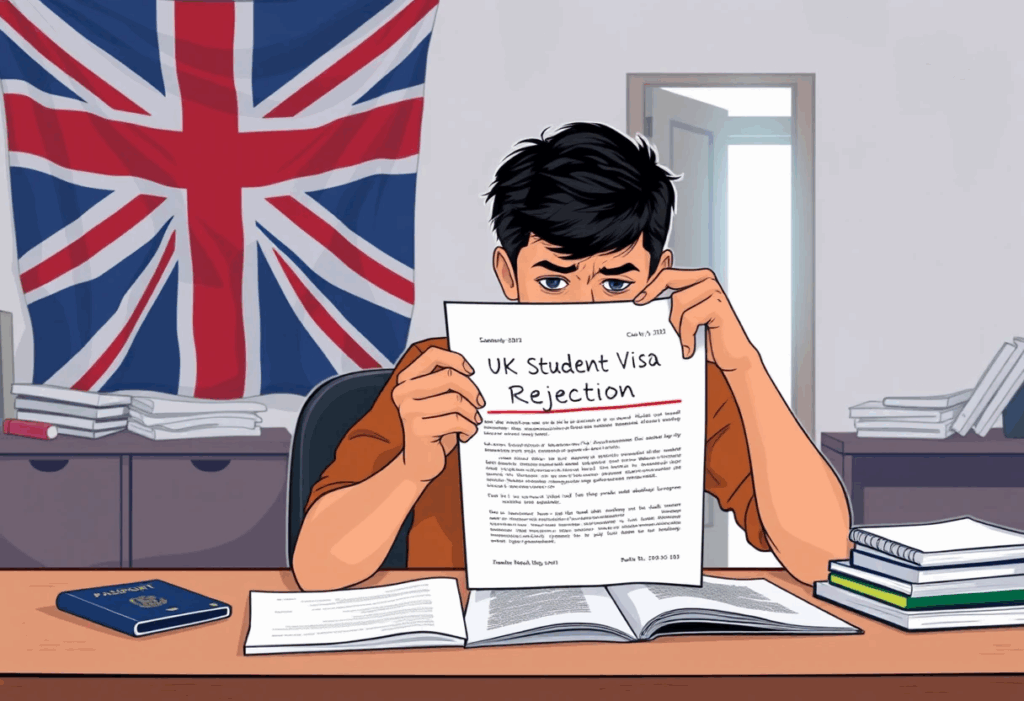
UK Student Visa Rejection Reasons and How to Avoid Them
Introduction to the UK Student Visa Process
The United Kingdom is a top destination for students globally, offering world-class education through universities like Oxford, Cambridge, and Imperial College London. But getting a UK student visa—officially known as the Tier 4 (General) Student Visa—isn’t always smooth sailing. One small mistake in your application can lead to rejection.
This article explores the top reasons why UK student visas get rejected and offers detailed guidance on how to avoid these pitfalls.
Common Reasons for UK Student Visa Rejection
UK Visas and Immigration (UKVI) assesses thousands of applications each year, and even a minor inconsistency can trigger a denial. Let’s break down the most common rejection reasons.
Incomplete or Incorrect Documentation
Incorrect or missing documents are a major cause of visa refusals. Whether it’s a typographical error in your name or a missing bank statement, these mistakes raise red flags.
How to avoid:
- Triple-check each document for accuracy.
- Use a document checklist from UKVI or your university.
Translate non-English documents and get them notarized if needed.
Insufficient Financial Proof
To get a UK student visa, you must show that you have enough money to pay for your course and support yourself. The current requirement is to have funds for tuition plus at least £1,334 per month (for up to 9 months) if studying in London.
Common mistakes:
- Submitting bank statements that are less than 28 days old.
- Bank statements with insufficient balance.
- Documents not in the required format.
Failure to Meet English Language Requirements
You must demonstrate your proficiency in English through recognized exams like IELTS or TOEFL unless you’re exempt.
Avoid rejection by:
- Checking if your university requires a specific test.
- Ensuring your test result is recent and valid at the time of application.
Inadequate CAS Letter or Errors in CAS
The Confirmation of Acceptance for Studies (CAS) is a unique reference number issued by your UK university. Errors in your CAS—like incorrect tuition fees or personal details—can result in denial.
Tips:
- Review your CAS letter line-by-line.
- Contact your university to correct any inconsistencies before applying.
Suspicious or Inconsistent Travel History
Your visa history and travel patterns matter. Past overstays, deportations, or multiple rejected visas can raise suspicion.
What to do:
- Be honest about your travel history.
- Provide a covering letter explaining any unusual gaps or issues.
Unconvincing Statement of Purpose (SOP)
A weak SOP lacking clarity about why you’re choosing a particular course or career path can lead to refusal.
Improve it by:
- Highlighting how the course aligns with your future goals.
- Demonstrating genuine interest in studying in the UK.
Low Credibility Interview Performance
The credibility interview tests your intentions and background. Nervousness or vague answers can hurt your case.
Prepare by:
- Practicing mock interviews.
- Being clear about your university choice, course structure, and career plans.
Submitting Fake or Forged Documents
Submitting fake degrees or financial documents can lead to a 10-year UK ban.
Never do this. Instead, if you’re missing something, explain it transparently and provide alternate proof.
Applying to Unrecognized or Blacklisted Institutions
Applying to a non-licensed or blacklisted university raises questions about your legitimacy.
Ensure your institution is:
- On the list of licensed student sponsors (Tier 4).
- Reputable and recognized by UK authorities.
Administrative and Technical Issues
Sometimes, the problem isn’t your profile—but how the application was submitted.
Application Filed Late or During Peak Times
Delays in documentation or applying too close to the intake date can cause issues.
Avoid delays by:
- Starting the visa process 3-4 months before your course begins.
Using priority services if needed.
Errors by Visa Agents or Consultants
Not all agents are trustworthy. Misrepresentation by an agent counts against you, not them.
What to do:
- Choose only authorized OISC-certified advisors.
- Review the final application before submission.
How to Avoid UK Student Visa Rejection
Let’s now look at proactive steps to increase your visa approval chances.
Double-check Your Application Documents
A simple typo or mismatch can cause denial. Use multiple sources—friends, mentors, official checklists—to verify.
Prepare Well for the Credibility Interview
Know your course modules, future career plans, and how your studies relate to them. Rehearse common questions.
Choose a Recognized Educational Institution
Verify that the school is a UKVI-licensed sponsor. This not only improves your visa chances but ensures your degree is respected globally.
Be Honest and Transparent in All Statements
From your SOP to interview, always be truthful. Even minor inconsistencies can be seen as deceitful.
Get Professional Guidance When Necessary
If overwhelmed, consider a licensed immigration consultant. They know the process inside out.
Check official guidance here from UKVI
FAQs about UK Student Visa Rejections
Q1: What is the most common reason for UK student visa rejection?
A1: Incomplete or incorrect financial documents top the list.
Q2: Can I reapply after a UK student visa rejection?
A2: Yes, but you must correct the issues from your previous application.
Q3: Do I need to attend an interview for a UK student visa?
A3: Most applicants do, especially if flagged for credibility interviews.
Q4: How much bank balance is needed for a UK student visa?
A4: Tuition fee + £1,334 per month (London) or £1,023 per month (elsewhere) for up to 9 months.
Q5: Can a poor SOP lead to visa rejection?
A5: Absolutely. An unconvincing SOP can result in denial during the credibility interview.
Q6: What if I used a fake document unknowingly provided by my agent?
A6: Unfortunately, you’re still held responsible. Always review your documents personally.
Conclusion
Getting a UK student visa is a critical step in your academic journey. While the process can be detailed, understanding common UK student visa rejection reasons and how to avoid them puts you ahead of the curve. Double-check your documents, prepare for your interview, choose the right university, and stay honest in your application.
